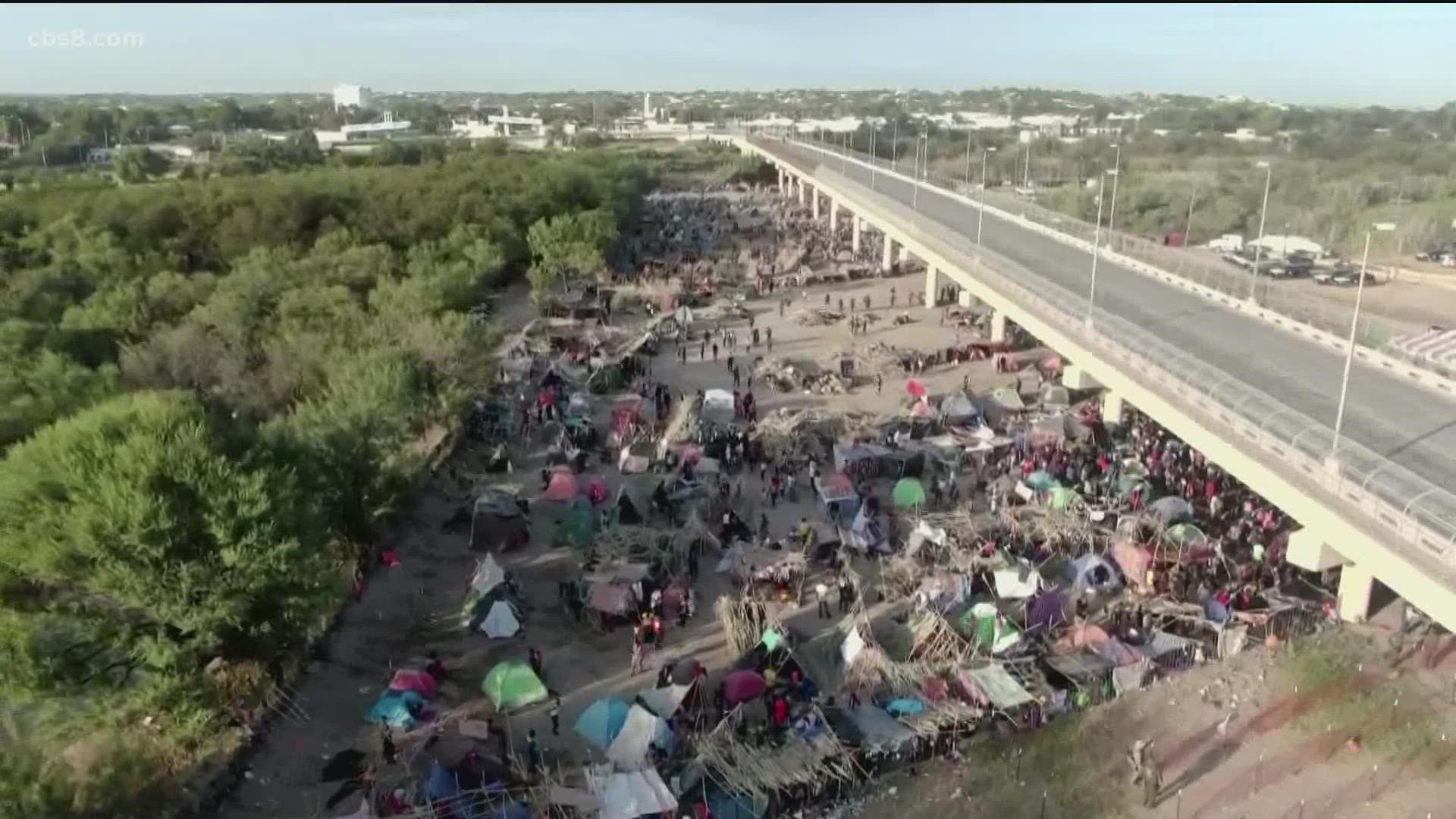SAN DIEGO COUNTY, Calif. — The San Diego County Board of Supervisors Tuesday unanimously approved a temporary shelter policy to handle asylum-seekers who arrive at the U.S.-Mexico border asking for humanitarian protection.
The board also approved seeking out state and federal reimbursements to pay for shelter services.
With Title 42 immigrant expulsions due for possible termination on May 23, board Chairman Nathan Fletcher and Vice Chairwoman Nora Vargas presented the policy for a subcommittee to address both short-term and long- term solutions for the influx of migrants entering San Diego County.
Before the vote, Vargas said the county can be a welcoming place, and must continue to offer services to those migrants making that difficult journey.
"This is a very personal issue for me," Vargas said, citing her work with the San Diego Rapid Response Network, a human rights and immigrant rights group.
She added that, despite litigation surrounding Title 42, "this is the direction we must go."
On Monday, a federal judge temporarily blocked the Biden administration from ending the Trump-era restriction, which allows border authorities to turn migrants back to Mexico or their home countries because of the coronavirus health crisis.
The case is still pending.
Vargas said the subcommittee will seek input from supervisors and work with the county Office of Immigrant and Refugee Affairs moving forward.
In a statement after the vote, Fletcher said the vote "puts us in a position to provide the care, compassion and services people will need when they get here."
"San Diego County has established itself as a welcoming community for families seeking asylum," Fletcher said earlier. "Several years ago we demonstrated our ability to work with local partners, stand-up a shelter, provide services and help families make connections to their sponsors; and it is important we are prepared to provide humane support for families coming to San Diego."
Fletcher's office said that between now and when Title 42 is lifted, the county will spend time identifying a location for the asylum shelter and getting it ready for operation.
In 2019, then-Chair Greg Cox and Fletcher docketed and passed a similar measure. The vacant county-owned Family Court House in Fletcher's district was made into a shelter for families seeking asylum. The county, along with Jewish Family Services and the members of the San Diego Rapid Response Network, worked in partnership to assist more than 20,000 children and their families.
"The county of San Diego has proven that we're a welcoming community and that we're committed to supporting and assisting refugees in their journey, so they safely reach their destination," Vargas said earlier. "As the safety net for our communities, we have a responsibility to provide safe respite shelter with supportive services to ensure the well-being of these vulnerable populations, many of which are parents and children fleeing violent conflict, war and unlivable conditions."
Since 2021, Fletcher and Vargas have pushed actions to tackle issues for migrant communities, including making COVID-19 vaccines available, working with the city of San Diego and other groups to open the San Diego Convention Center for unaccompanied children seeking asylum and establishing the county's Office of Immigrant and Refugee Affairs.
Supervisor Jim Desmond said Tuesday that, considering how the migrant issue impacts the San Diego region, it's the county's job to ensure there are health screenings and help for those traveling on to other destinations in the United States.
"I'm not in favor of terminating Title 42, but if federal government does do that, we have to be prepared," he added.
Desmond also noted the importance of board approval of any long-term policies associated with the shelter program, and said that if the county can access outside funding, "go ahead and get it."
During the public comment period of Tuesday's meeting, several people, including a Jewish Family Services official, spoke in favor of a shelter program for migrants.
One opponent said she was concerned about what might happen to unsupervised migrant children, and that there seemed to be no checks and balances on the program.
WATCH RELATED: San Diego leaders welcome plan to end Title 42

